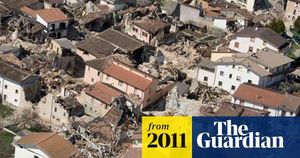Europe is grappling with a significant energy crisis following Russia's invasion of Ukraine, dramatically altering how it generates and secures energy supplies. Once heavily reliant on Russian fossil fuels, various European nations are now desperately seeking alternatives.
Czechia, which has worked diligently over the years to reduce its reliance on Russian energy, seems to be one of the furthest along. According to Czech energy representative Martin Bartuska, since 2022, the country has implemented key strategies to cut down on imports from Russia, including leasing liquefied natural gas (LNG) terminals and securing contracts with suppliers from Norway and Algeria.
“We privatised the gas industry back in the 2000s,” Bartuska stated. “Unlike other PMs, my PM [Petr Fiala] will not go to Moscow to beg for gas.” This marks a notable shift from neighbors like Slovakia and Hungary, where long-term contracts with Russia remain.
Following the onset of the Ukraine conflict, Czechia secured LNG terminal capacity and acquired RWE’s stake in the Damborice gas storage facility, ensuring compliance with EU regulations to stockpile 90% of its winter gas needs. By the end of 2022, this culminated in Czechia’s dependence on Russian pipeline gas falling from 90% to nearly zero.
Yet not all is smooth sailing. Pavel Havlicek, of the AMO think tank, raised concerns about the Czech government's lack of transparency around its energy expenditures, claiming the country has spent more than €7 billion on Russian oil and gas since the invasion, significantly outpacing the €1.29 billion earmarked for Ukrainian aid.
Despite these challenges, Bartuska injects optimism about regional capabilities. He argues, “I have no worries for Slovakia; I am sure Slovakia will be okay.” Slovakia, led by Prime Minister Robert Fico, has taken heat for its continued embrace of Russian gas. Fico, criticized for his pro-Russian stance, faces scrutiny from both domestic and international observers. Tensions escalated recently when Ukraine's President Volodymyr Zelensky condemned Fico's remarks, describing him as someone who chooses Moscow over more reliable partners. Fico's incendiary comment labeling Zelensky “the enemy” of Slovakia has drawn ire and resulted in Ukraine summoning the Slovak ambassador for clarification.
European nations are scrambling to reconfigure their energy sources. Germany is receiving tankers carrying LNG from the United States at rapid rates, emphasizing the shift toward alternatives. Spain has ramped up its use of wind energy, illustrating how varied approaches are being utilized across Europe.
Catherine de Bruecker, head of energy policy at the European Commission, remarked, “The energy appeared cheap, but it exposed us to blackmail.” With soaring energy costs from increased imports and diminished domestic production, many European households now face unprecedented energy poverty. Current assessments estimate 10% of Europeans cannot adequately keep their homes warm.
Despite this, renewable energy sectors like wind and solar power have seen substantial increases—up 50% since the onset of the Ukraine crisis. This transition, combined with the halting of Russian gas supplies, has reshaped the continent's energy map. Yet sourcing natural gas remains challenging, especially with Europe competing on the global market against nations like China and India.
Natural gas prices, though falling from their record highs, remain more than double pre-war levels, straining Europe's economy and ability to meet energy needs. Companies are reassessing operational costs, prompting significant downsizing and closures. For example, Norwegian fertilization giant Yara International has halted ammonia production operations due to the high costs associated with energy.
Moving forward, experts indicate Europe must focus on enhancing infrastructure to adapt to fluctuated supply and securing energy imports efficiently. “There will definitely be more pressure on Russian gas imports,” warned Bartuska, as the European market continues to navigate these complex energy dynamics.
Overall, as Europe emerges from the shadows of Russian energy dominance, the path forward involves not only securing diverse sources of energy but also ensuring economic resilience and addressing the immediate pressures faced by households and businesses alike.



